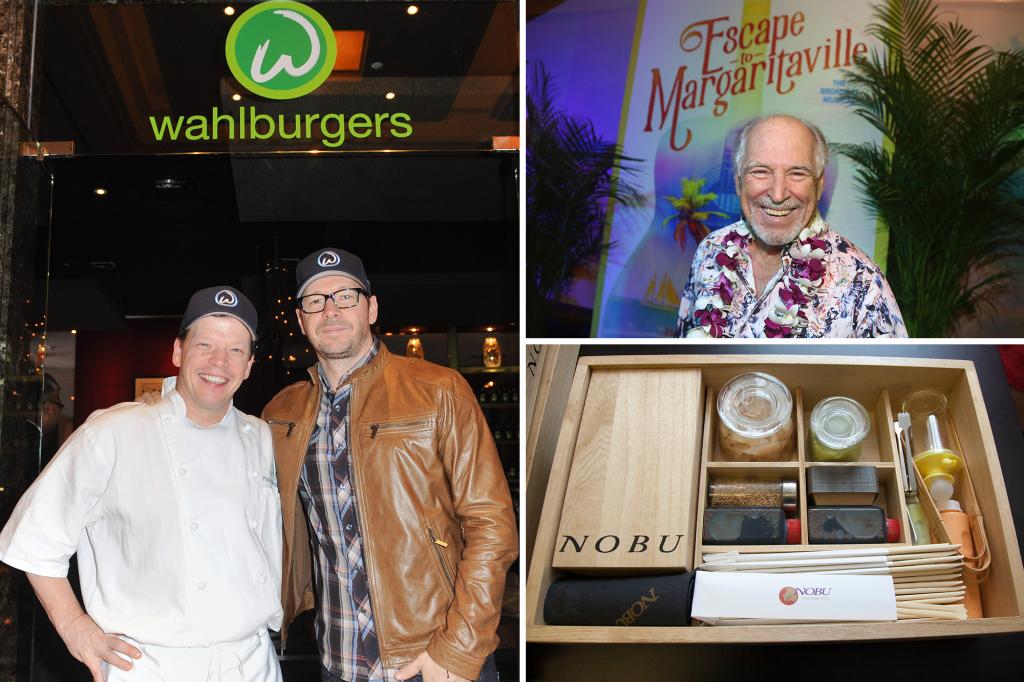The allure of celebrity often extends beyond the screen and stage, reaching into the culinary world. However, a recent study reveals that fame doesn’t always translate to culinary success. A survey conducted by the gaming website cases.gg analyzed online reviews of restaurants and bars owned by high-profile figures, revealing a mixed bag of experiences and a stark reminder that star power doesn’t guarantee a five-star meal. The study focused primarily on establishments in and around New York City, gathering data from Google and TripAdvisor to determine the percentage of five-star reviews for each celebrity-owned venture. The results highlighted a gap between expectation and reality, with some big names falling short of the mark.
Leading the list of lowest-rated establishments was Wahlburgers, the burger chain owned by actor brothers Mark and Donnie Wahlberg and their chef brother Paul. Despite its widespread presence across 21 US states, Canada, Australia, and New Zealand, Wahlburgers garnered only 45.8% five-star reviews, placing it at the top of the negatively reviewed list. The chain’s New York location in Garden City, Long Island, received particularly harsh criticism, with an average Google rating of 3.3 and customer complaints ranging from “school cafeteria food” to “understaffed” service and incorrect orders. This underwhelming performance comes as reports surface of impending closures for 79 Wahlburgers outlets in the Midwest, raising questions about the chain’s long-term viability.
Trailing closely behind Wahlburgers was Margaritaville, the restaurant chain inspired by the late musician Jimmy Buffett. The survey found that Margaritaville received only 47.6% five-star reviews, indicating a significant portion of dissatisfied customers. The Times Square location, in particular, faced criticism for its “horrible” service and food quality, averaging a mere 3 out of 5 on TripAdvisor. This suggests that the tropical paradise theme and association with Buffett’s laid-back persona may not be enough to compensate for subpar dining experiences. The study’s findings highlight the challenges faced by celebrity-themed restaurants in maintaining consistent quality and meeting customer expectations.
Occupying the third spot on the list was Nobu, the upscale sushi restaurant co-founded by Oscar-winning actor Robert De Niro. Despite its reputation for high-end cuisine and celebrity clientele, Nobu received only 51.5% five-star reviews, indicating a lower level of customer satisfaction compared to other establishments. While this percentage is higher than Wahlburgers and Margaritaville, it nonetheless suggests that even prestigious celebrity-backed restaurants are not immune to criticism. The study doesn’t delve into specific reasons for the lower-than-expected ratings, but it raises questions about whether the high prices and celebrity association are justified by the overall dining experience.
Further down the list, other celebrity-owned establishments faced varying degrees of scrutiny. Cabo Wabo Cantina, owned by rocker Sammy Hagar, secured fourth place with 52.6% five-star reviews. Jay-Z’s 40/40 Club in Brooklyn followed closely with 52.9% five-star reviews, but also faced criticisms of “overpriced” food and “watered down” drinks. Rustic, the restaurant at Francis Ford Coppola’s winery in California, fared better, boasting average ratings of 4.4 on Google and 4 on TripAdvisor. Joanne Trattoria, the Upper West Side Italian eatery owned by Lady Gaga’s parents, received a more positive reception with 54% five-star reviews.
Rounding out the list were establishments that generally fared better in terms of customer satisfaction. Martha Stewart’s The Bedford in Las Vegas received 54.85% five-star reviews, Pharrell Williams’ Miami restaurant Swan garnered 55.3%, and retired NFL quarterback Peyton Manning’s Saloon 16 in Knoxville, Tennessee, scored 56.21%. These higher percentages suggest that some celebrities are more successful than others in translating their brand appeal into positive dining experiences. However, Gabriele Asaro, research head at cases.gg, emphasized the importance of distinguishing between ventures driven by genuine passion and those simply leveraging celebrity status for profit.
The findings of this study underscore the complex relationship between celebrity, consumer expectations, and the restaurant industry. While the star power of a celebrity owner can initially draw customers, it doesn’t guarantee sustained success. Ultimately, the quality of the food, service, and overall dining experience are the key determinants of whether a restaurant thrives or struggles. Customers who associate high standards with a particular celebrity might be more critical if their dining experience doesn’t align with those expectations. Therefore, celebrity-owned establishments face the added pressure of living up to the reputation of their famous namesakes, demonstrating that even in the culinary world, star power alone is not enough to guarantee a winning recipe.


